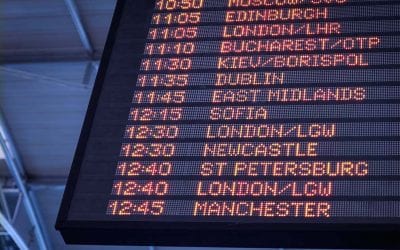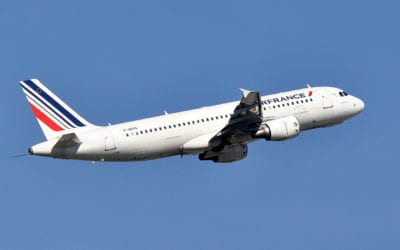America needs a temporary FAA mask mandate now
One of the top stock analysts in America agreed with Travelers United. He declared that a national FAA mask mandate is critical for the large-scale resumption of business travel during the coronavirus pandemic. Travelers United made this argument more than a month ago. The consumer advocacy organization has discussed an FAA face mask rule with airline executives, DOT, lobbying organizations, and other consumer groups.
Corporate and leisure travel is not going to come back without a mask mandate
On a CNBC TV show, Jim Cramer said, “Unless everyone wears masks and there’s a unified decision from Washington that everyone must wear a mask, I think … corporate travel is just not going to come back the way people think,”
Airlines for America (A4A), the main airline lobbying association, and most of their members have firmly claimed that they want no regulations. They point to the International Air Transport Association (IATA) and the International Civil Aviation Organization (ICAO). These international organizations have proposed programs to build passenger confidence. The Trump administration, airline lobbyists, and, initially, their airline members, seemed adamant. No new regulations.
Today Delta Air Lines broke ranks with A4A
Delta, like the rest of the US airlines (except Allegiant), requires their passengers to wear masks. However, many travelers are refusing to sit with their masks on for long trips. The mask mandate is difficult to enforce.
Airline enforcement is a problem. Airlines tell the public that everyone must wear face masks, but until now, they have not enforced their own rules. There is no federal rule that mandates wearing face masks. There is no airline-wide consistency with enforcement. Therefore, passengers who believed the airlines when they said all passengers must wear masks are upset. They now claim that the airlines are being misleading and deceptive when they say everyone must wear masks, but do not enforce their rules.
Delta CEO Ed Bastian told Axios that a national mask mandate would boost the company’s ability to enforce Delta’s own policy.
“If the government were to mandate it, I think that would help,” Bastian said in the Axios interview. “Because if the government were to mandate it, then you can enforce it.”
Exactly what Travelers United has been saying — a mask mandate is important
In discussions with airline lobbyists and airline personnel, we have suggested ways that airlines could create passenger confidence. One of our top recommendation for creating more passenger confidence was to have the FAA require passengers wear face masks for the next six months.
On Delta’s website about its mask policy, the company said those who choose not to comply with this or other safety requirements risk future flight privileges with the carrier.
American Airlines last week temporarily banned a customer who was removed from a flight in New York for refusing to wear a face mask on the plane. (The passenger later flew on another AA flight without a mask and faced no enforcement.)
However, the passenger who was removed from the AA flight was a provocateur who was making a scene in order to be tossed from the flight. He had an agenda.
The real issue is that airlines really do not have any enforcement authority. Take a look at seat-belt use. Some states have reported automobile seat-belt usage rates of around 70 percent. The airlines with regulations and enforcement have 100 percent usage rates. It is not a question of freedom. It is a question of following the law. When there is a federal regulation, passengers will follow it.
Airlines cannot enforce this face mask rule by themselves
For airlines to gather together and make rules could be construed as an unfair and perhaps bordering on monopolistic practice. Only the FAA can mandate masks on planes.
Plus, airlines have different internal rules and regulations. Some airlines have instructed flight attendants to not enforce mask rules. Other airlines have suggested that passengers who refuse to wear masks will be punished by being banned from flying. There is no consistency in how long passengers are banned. And, some passengers seem to be facing no official airline enforcement, but severe passenger peer pressure to wear face masks. These airline differences make enforcement impossible. Obviously, the US needs an FAA mask mandate.
An article in Skift, which covers the travel industry, noted the following:
At United, flight attendants are supposed to give passengers two verbal warnings. If the customer does not follow after the second warning, the flight attendant should stop trying to persuade the passenger and submit a written report to managers within 48 hours. American has a similar approach, with the carrier telling flight attendants, “we want to keep the interaction de-escalated.”
Each flight attendant will interpret enforcement in a slightly different manner, just as not all have the same definition of what it means to over-serve alcoholic drinks. Some may confront non-masked passengers, while others may not. And while many will go through the process of reporting non-compliers to headquarters, some may not bother with the paperwork.
Our aviation system is too important to allow enforcement confusion to trump confidence
The country is facing a pandemic. That requires quick action. Nothing is faster than having the FAA say that face masts are needed for a period of six months or so. Tomorrow, the FAA can declare a temporary, national emergency mask mandate,
I understand that we are working with an administration that abhors rules and regulations. However, sometimes regulations can solve problems. I understand that airlines feel there are enough regulations and their desire to have no new regulations added. But, this is the time for action. Plus, I am proposing “temporary emergency health rules” that apply to safety during a national emergency.
Consequently, we need a national mask mandate to be in effect for at least six months. Once COVID-19 is under control, we can all go back to flying like it used to be.

Charlie Leocha is the President of Travelers United. He has been working in Washington, DC, for the past 14 years with Congress, the Department of Transportation, and industry stakeholders on travel issues. He was the first consumer representative to the Advisory Committee for Aviation Consumer Protections appointed by the Secretary of Transportation from 2012 through 2018.



